History, Library, and Inspirations
We present the history of Demo1 (and the non-profit association TP1) including projects and texts, links to sources of inspiration and a small library of important texts which inspired the work.
(This Website is under construction.)
For infos about the team, contact or your possible support, see the subpage “contact, info, support“.
History
Demo1 was founded in 2025.
From 2008 on, we explored the world of the humane scenery approach. Here, you can read about the history of Demo1, and the prehistory (for example: TP1); find texts and links to materials.
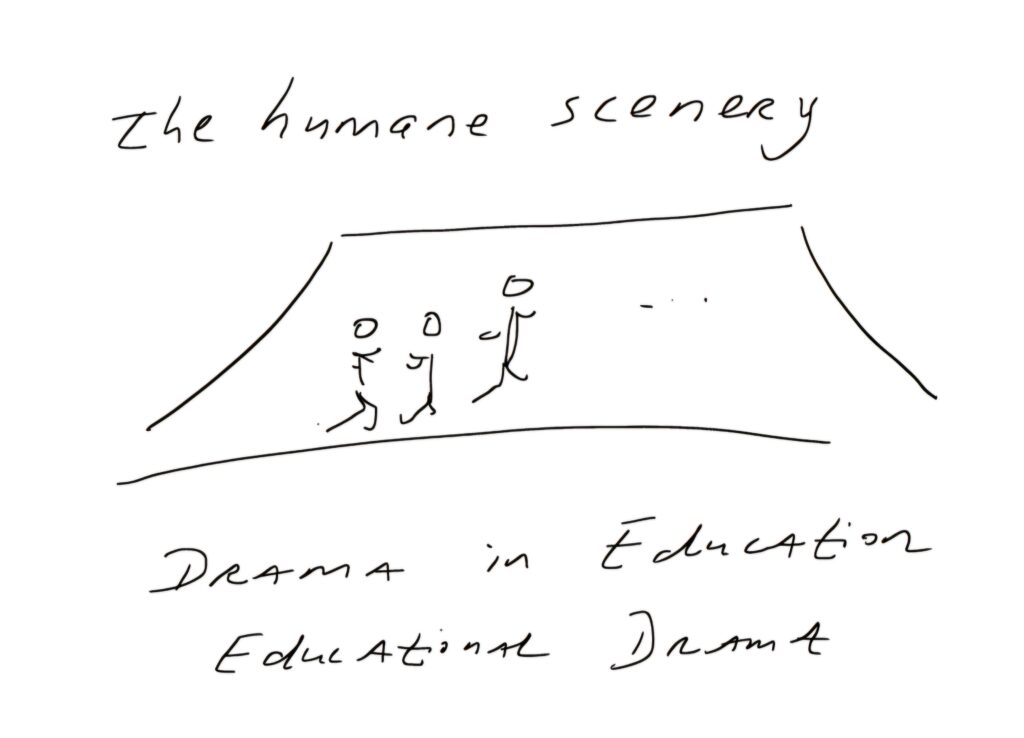
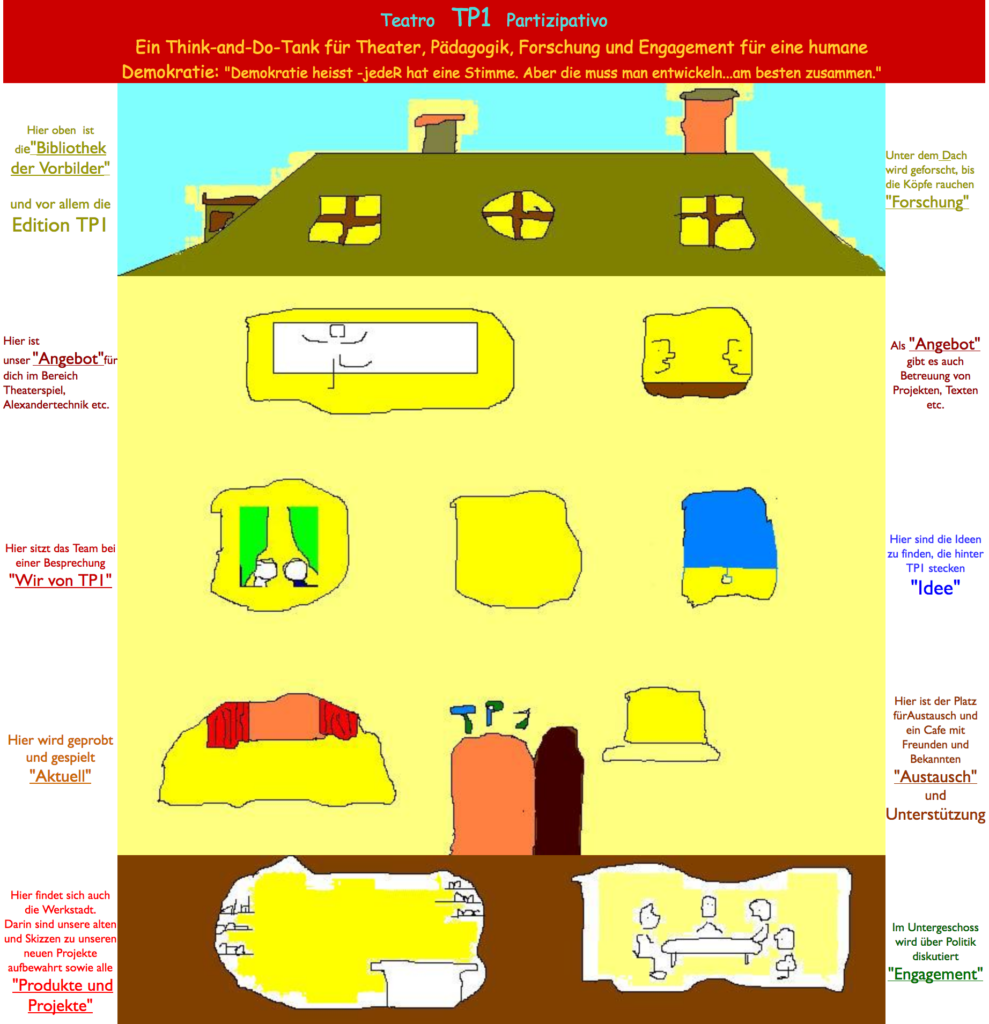
Powered By EmbedPress
Beginnings in Uppsala
In the cold winter of 2008, TP1 was founded in rooms near the main building of the University of Uppsala in Sweden.
Helped by “drivhuset”, the university-associated innovation centre, we started with the idea of combining drama in education and the engagement for deepening sustainability and democracy.
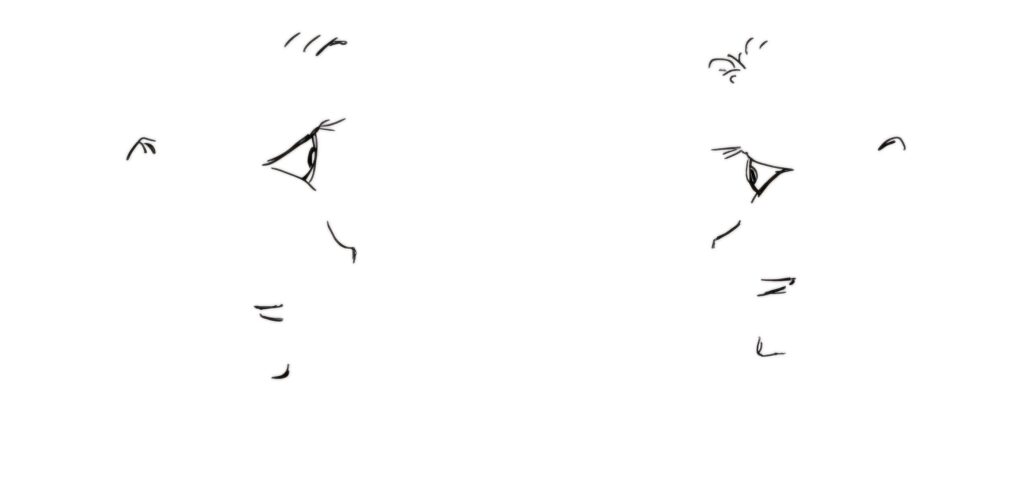
Overview
During the followig years we combined the creative work with the development of a main workshop, the publication of texts and books, and cultural and political interventions to strengthen a sustainable democracy.
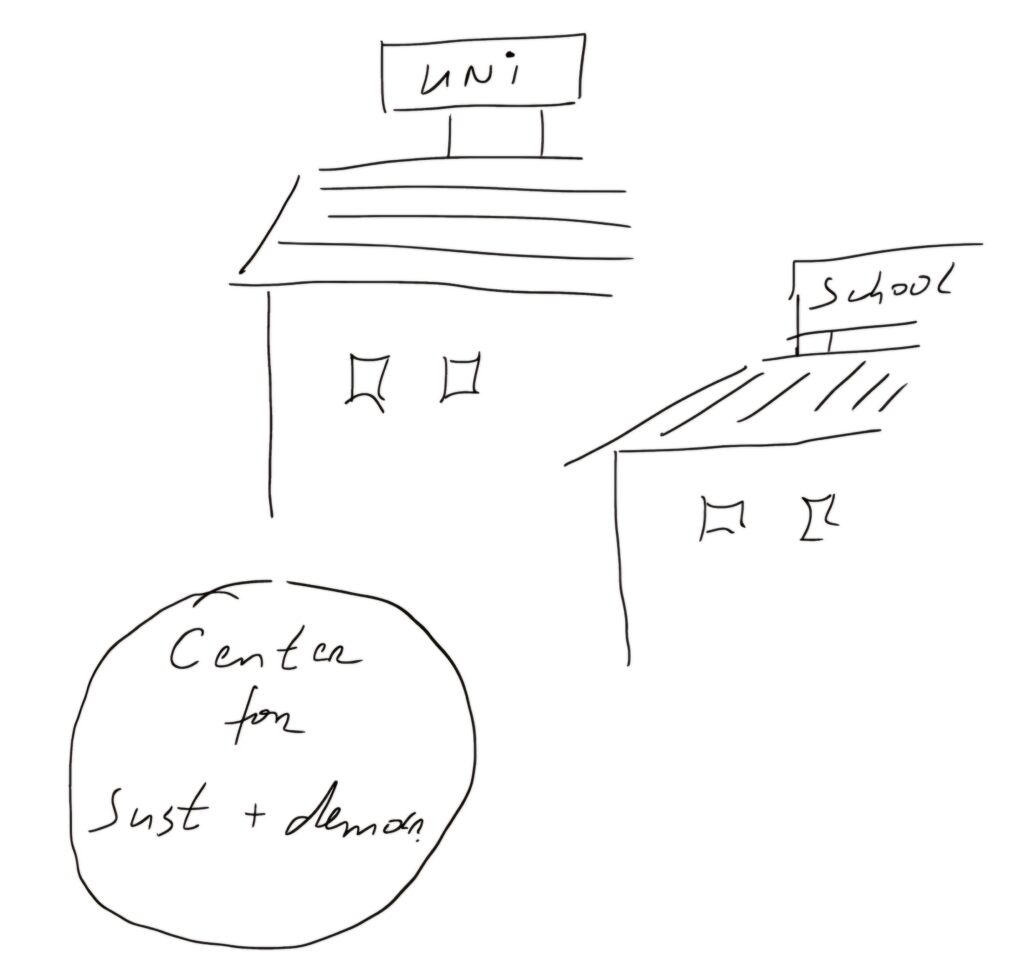
Books and publications
We summarized the idea and history including the main projects in this booklet: “Changing the social imaginary”, 2021 (see above).
The main publication during the first years:
“TP1. The workshop book”, TP1 Edition/Publit, Malmö 2012, with detailed descriptions of workshops inspired by the work of Alexander (Alexandertechnique), Bowlby/Ainsworth (attachment theory), Winnicott/Axline (social psychology), Stern (developmental psychology), Johnstone (Improvisation) and so on; combining developmental psychology, social psychology, physiology/embodied work, theories of democracy, sociology and philosophy.
One result is the booklet “How to use drama in education in schools?” in 2013, supported by the Spühl Stiftung in St.Gallen, Switzerland.
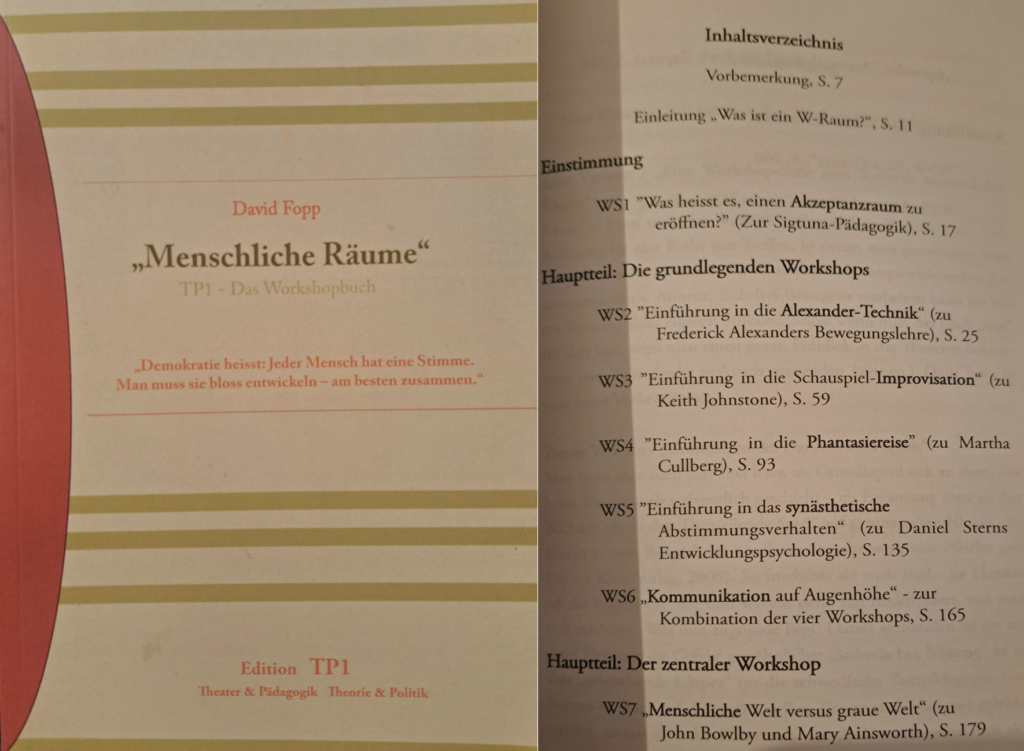
Becoming a non profit association
In 2014, TP1 became a non-profit association, located in St.Gallen, Switzerland, and active in Sweden (Stockholm/Uppsala), Germany (Berlin) and Switzerland (St.Gallen).

Cooperations
(See the booklet “Changing the social imaginary”, above):
Lagoratorium, Stockholm
Körperraum Mitte, Berlin
Spühl-Stiftung, St.Gallen
and many more.

Demo 1
In 2025, Demo1 is founded – besides the association TP1 – and focuses on workshops, the development of the basic training and the research projects.
Cooperation: In 2025 and 2026, Demo1 collaborates with the Fachhochschule Nordwestschweiz in the project “Cultures of sustainability”, combining art, research, and exchange with civil society.
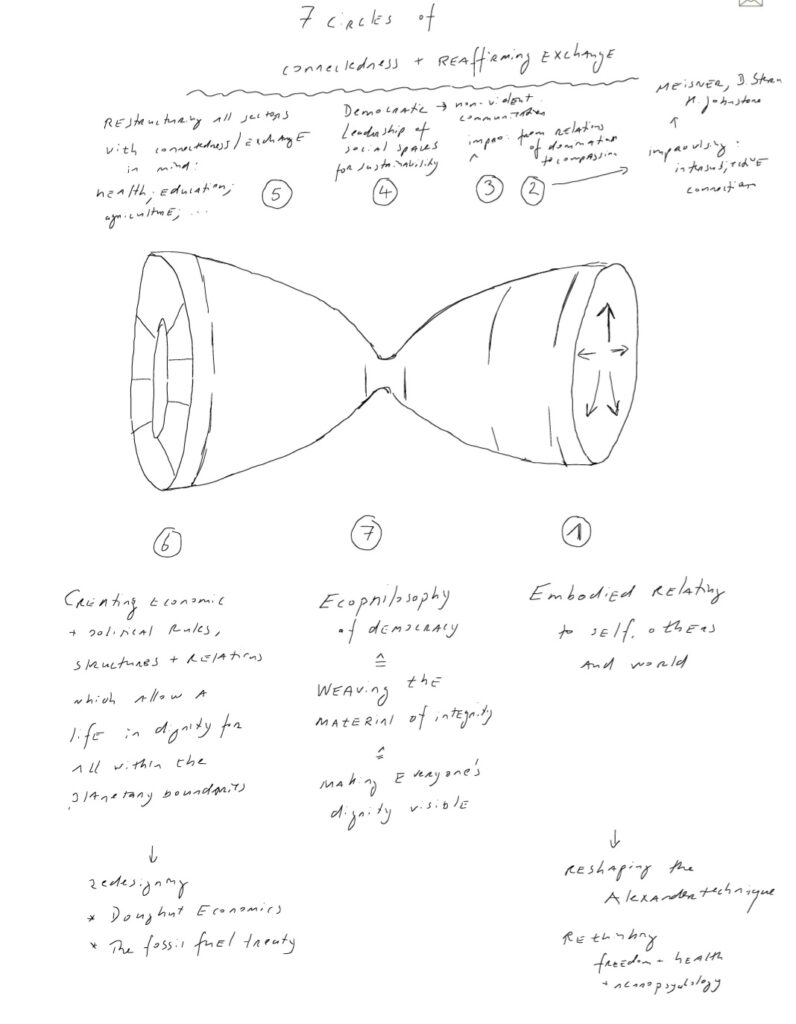
The Inspirations
Presentation of institutions, books and ideas which shaped and influenced the work
Drama in education (DiE)
1 Acting and directing, and creative courses, open for all:
City Lit, London.
2 Drama education and applied theatre (global citizenship etc):
New York University, Steinhardt School.
3 Drama didactics, teaching and learning processe sin arts: Department of “social sciences and humanities education”, Stockholm University.
DiE
Societal change in Education, Health, Economics etc (SC)
1 Centre for sustainability and global democracy:
Cemus, Uppsala University.
2 Centre for sustainable global economics and democracy:
ZOE, Köln and Brussels.
3 Doughnut Economics Lab.
SC
Global Transformative Initiatives (GTI)
1 Doughnut Economics Lab;
2 Fossil Fuel Non-Proliferation Treaty;
3 Faculty for a future;
4 Earth4All
GTI
Library of inspiration
Here are some of the most inspirational texts which enabled the work on the diabolo-model.
General research literature (on drama education)
McAvoy, M. et al (2022): Drama in Education. London: Routledge.
Prentki, T. (2018): Applied Theatre. London: Routledge.
Davis, David (2014): Imagining the real. Towards a new theory of drama in education. London: Trentham.
Sternudd, Mia Marie (2000): Drama som demokratisk fostran? Uppsala : Acta Universitatis Upsaliensis.
O Toole, John (1992): The process of drama. London: Routledge.
Practical books (on drama education)
O Toole, John and Haseman, Brad (2017): Dramawise reimagined. London: Currency Press.
Hatton, Christine & Lovesy, Sarah (2009): Young at Art. London: Routledge.
List, Volker & Pfeiffer, Malte (2009): Darstellendes Spiel. Stuttgart: Klett.
Heggstad, Kari (2014): 7 vägar till drama. Lund: Studentlitteratur.
On drama therapy:
Emunah, Renee (2020): Acting for real. London: Routledge.
Bessel van der Kolk (2015): The Body Keeps the Score. London: Penguin
The Demo1/Tp1 books
Fopp, David (2012): TP1. The Workshop book.
Fopp, David (2021): Changing the societal imaginary.
And some chapters in:
Fopp, David (2024):
The Youth Climate Uprising. From the School Strike Movement to an Ecophilosophy of Democracy. Bielefeld: Transcript.
Fopp, David (2016): Menschlichkeit. Bielefeld: Transcript.
Circle 1
Circle 1: Neuropsychology, anatomy and physiology
O Connor, Penny (2022): Alexander technique for Actors. London: Nick Hern books.
Immordino-Yang, Mary Helen (2017): Emotions, Learning, and the Brain: Exploring the Educational Implications of Affective Neuroscience. New York: W.W. Norton.
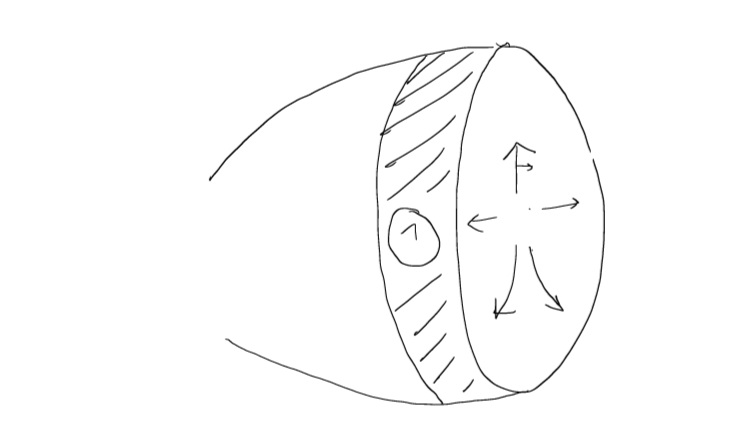
Circle 2
Circle 2: Improvisation as connecting to the other
Johnstone, Keith (2018): Impro. London: Bloomsbury.
Meisner, Sanford (1987): Sanford Meisner On Acting. New York: Vintage.
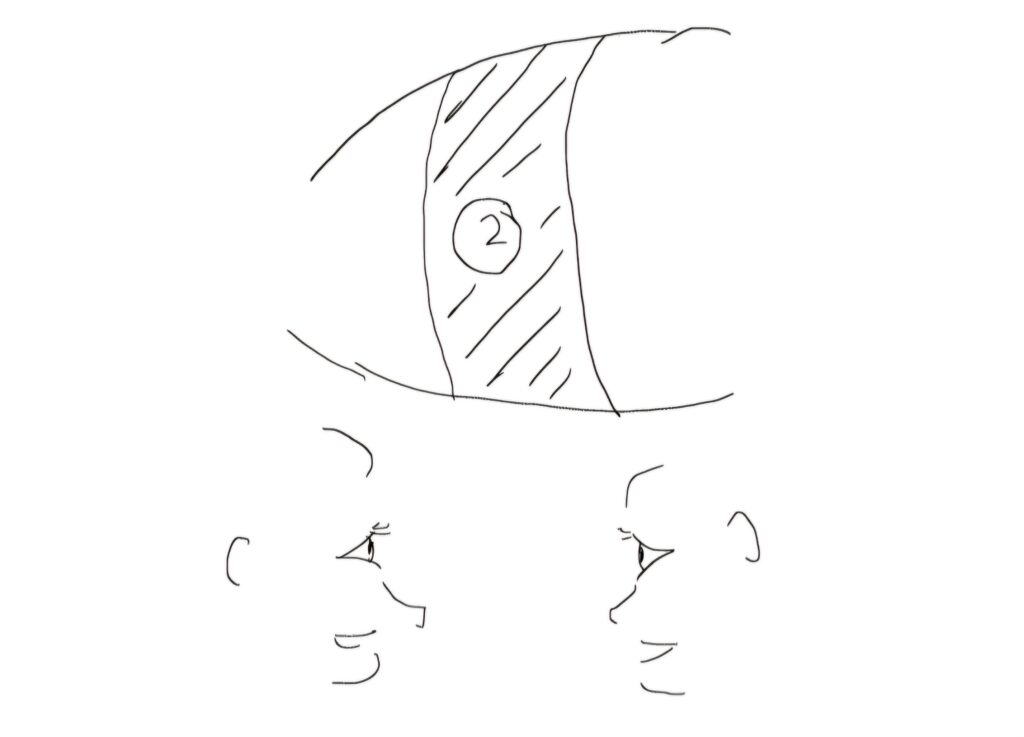
Circle 3
Circle 3: Intersubjective attunement and attachment
Stern, Daniel (2000): The intersubjective world of an infant. London: Routledge.
Winnicott, Donald (2005): Playing and Reality. London: Routledge.
For a mix of the core insights by Winnicott, Bowlby and Ainsworth, Kohut, Stern, Bion, Rogers and others into the qualities of good relationship building (active listening, containment, attachment etc), and the origins of violent communication and the prevention of violence and trauma,
see Philippa Perry in her popular book about good education: “The book you wish…”, Penguin, London 2019
and Bessel van der Kolk (2015): The Body Keeps the Score. London: Penguin
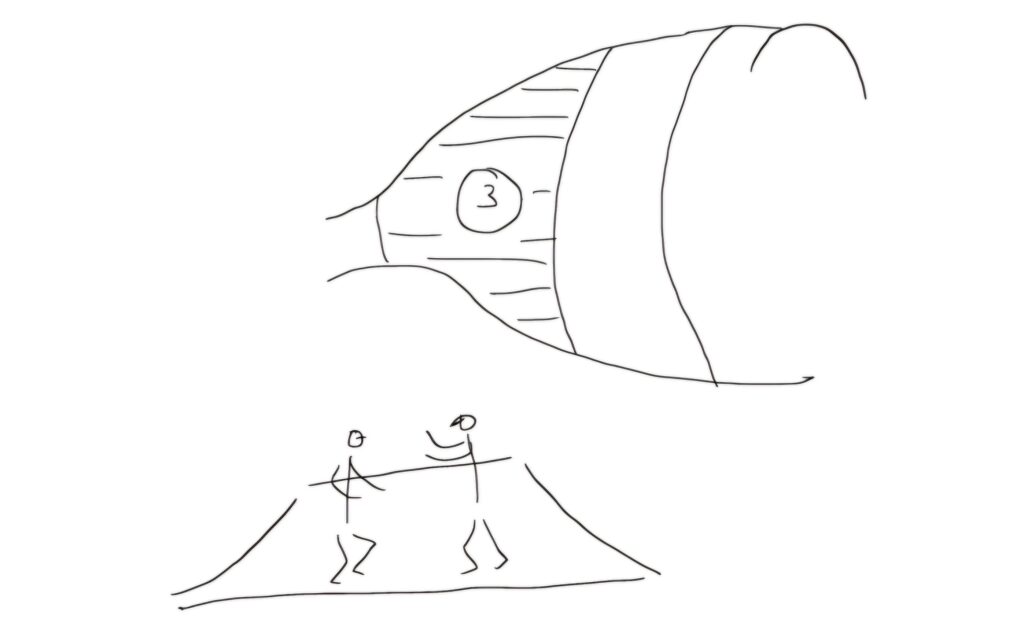
Circle 4
Circle 4: Humane democratic leadership
Fopp, David (2016): Menschlichkeit. Bielefeld: Transcript.
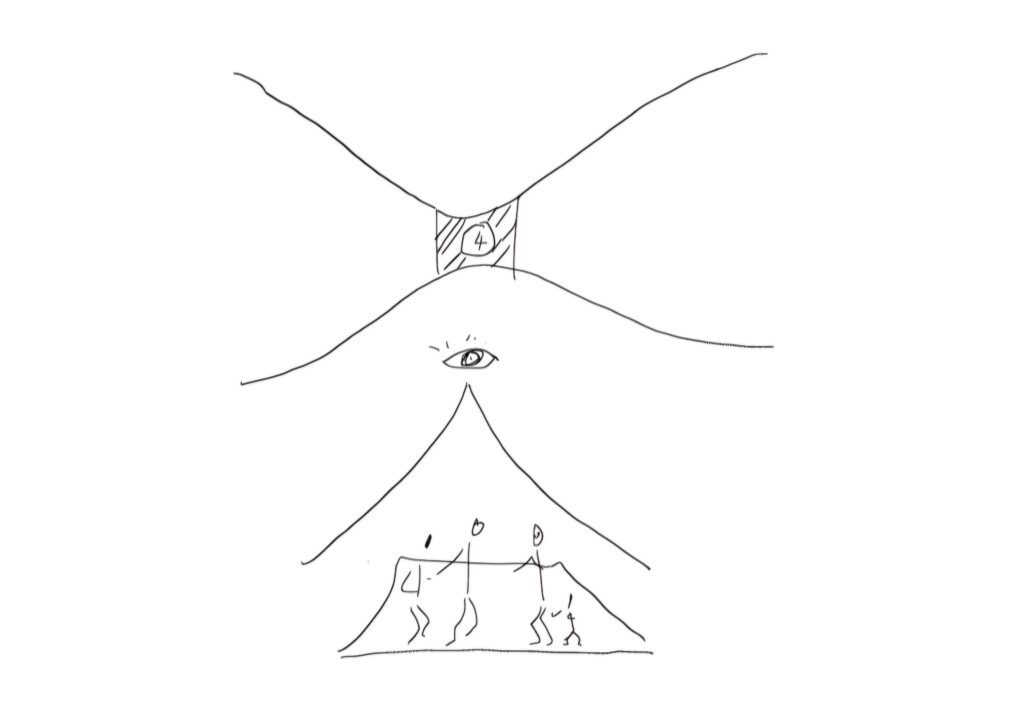
Circle 5
Circle 5: Political Economics
Raworth, Kate (2018): Doughnut Economics. London: Chelsea Green Publisher.
Göpel, Maja (2016): The great Mindshift. The Great Mindshift: How a New Economic Paradigm and Sustainability Transformations go Hand in Hand. Berlin: Springer.
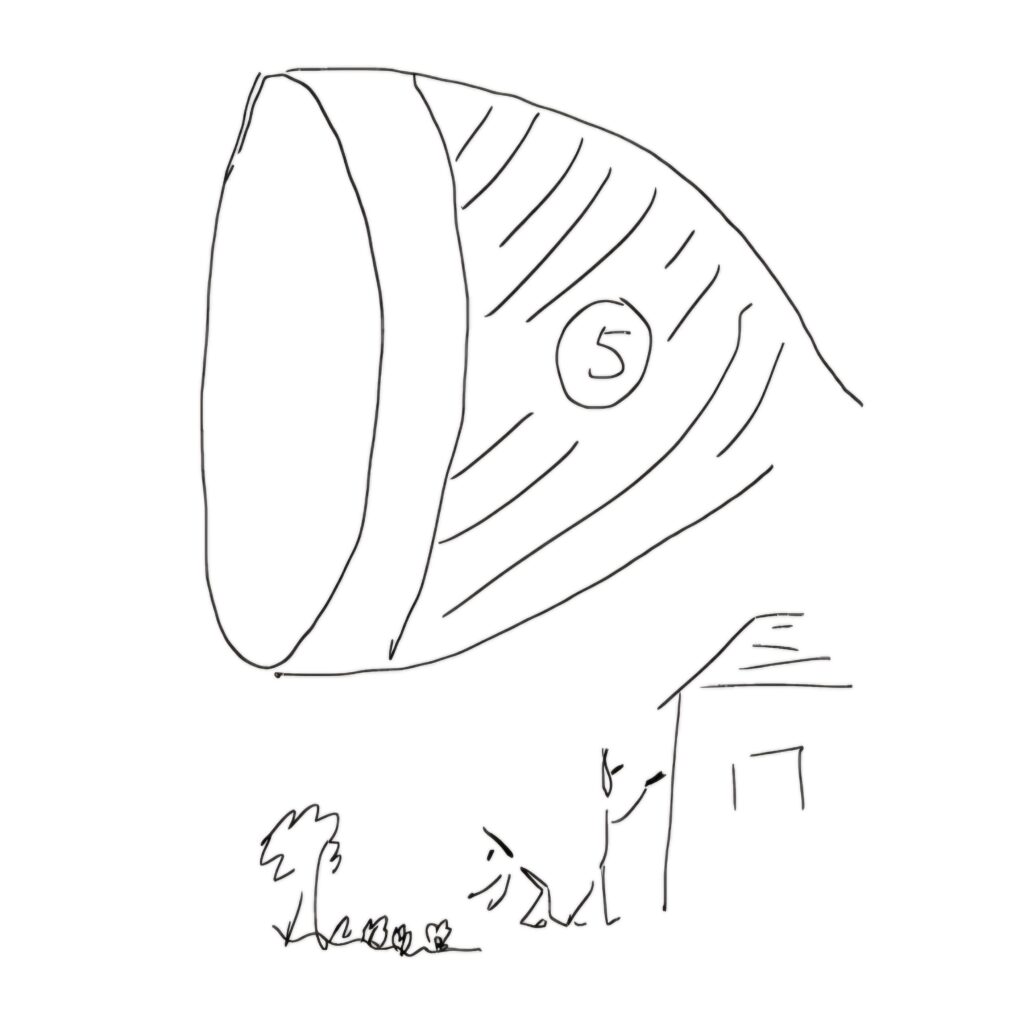
Circle 6
Circle 6: The global initiatives for economic-political change
Fossil Fuel Non-Proliferation Treaty
Bioregions
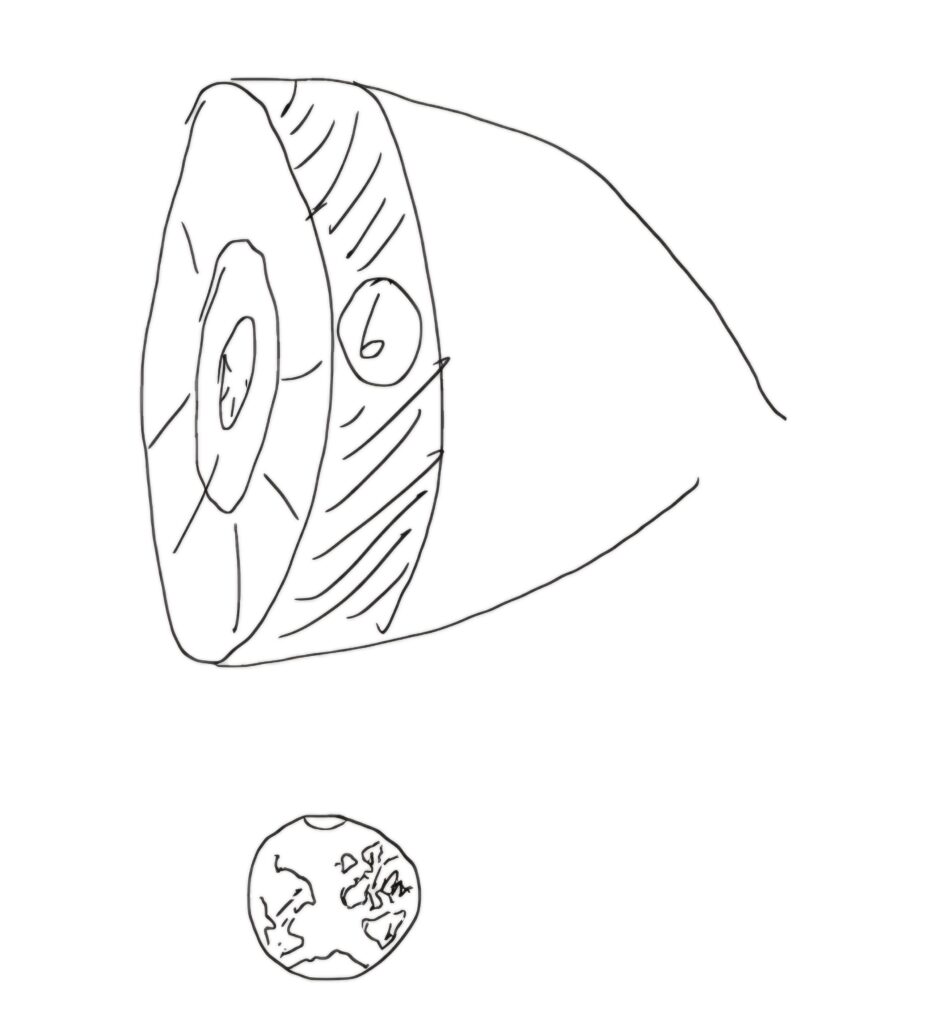
Circle 7
Circle 7: Ecophilosophy for democracy
Pelluchon, Corine (2019): Nourishment. A Philosophy of the Political Body. London: Bloomsbury Academic.
Fopp, David (2024): The Youth Climate Uprising. From the School Strike Movement to an Ecophilosophy of Democracy. Bielefeld: Transcript.
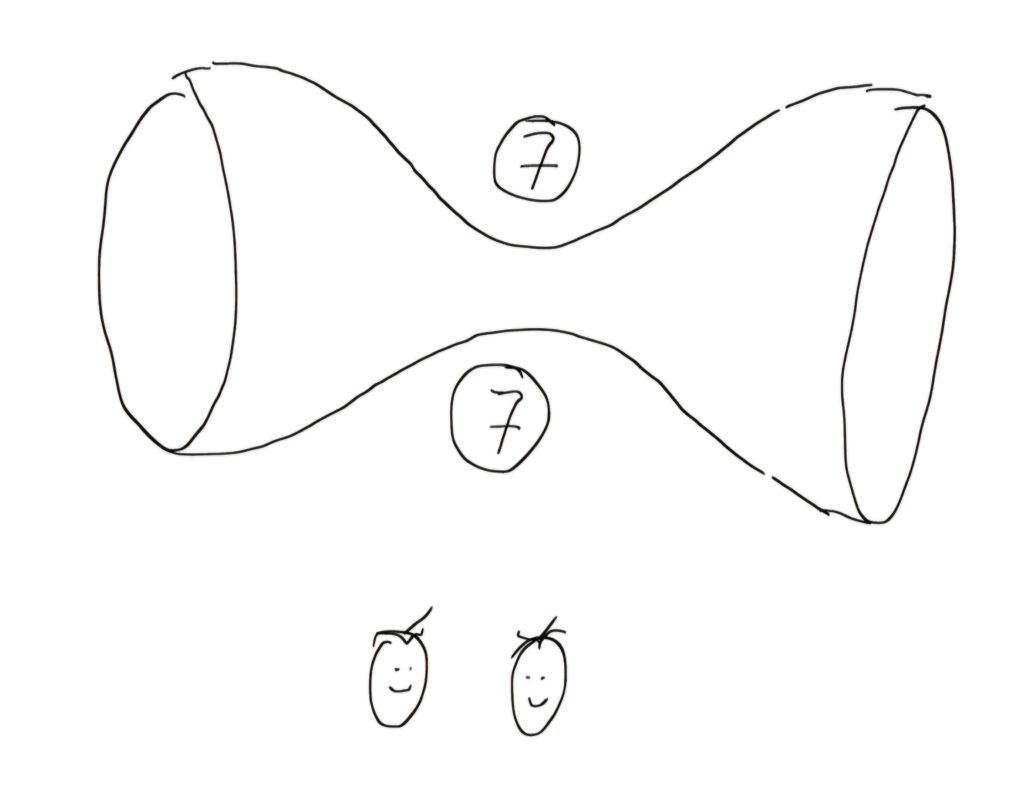
Interdependence of circles 1 to 7
Circle 1 to 7 in their interaction:
See chapter 9 in
Fopp, David (2024): The Youth Climate Uprising. From the School Strike Movement to an Ecophilosophy of Democracy. Bielefeld: Transcript.

